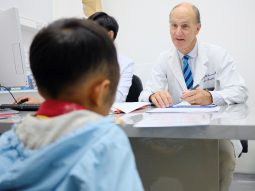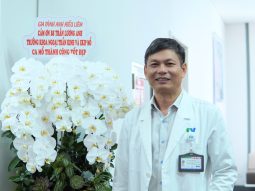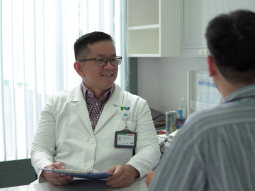The pressure of treating thousands of neurosurgical cases over more than two decades has honed Dr Nguyen Manh Hung’s resilience and keen intuition, enabling him to pull many patients back from the brink of death.
Along his journey to become a neurosurgeon, one of the most challenging specialties in the medical field, Dr Nguyen Manh Hung established many professional principles for himself. Foremost among these is his belief in “treating patients as if they were family.”
Resolved to conqueror every challenge.
One Saturday afternoon in early May, while preparing for a scheduled surgery, Dr Nguyen Manh Hung received an urgent call from the Accident & Emergency department. A patient with a brain haemorrhage was being admitted in a critical state.
“This case is at three on the Glasgow scale,” was the quick update from the Accident & Emergency doctors to Dr Hung. The Glasgow Coma Scale measures the level of consciousness in patients with acute brain injury. Typically, with a Glasgow score of three, the patient has lost complete consciousness, and international medical guidelines often suggest that surgery may not offer any further benefit.
However, the sharp intuition that Dr Hung had honed over years of treating thousands of surgical cases sparked a bold, unconventional thought: what if this case was an exception among the thousands with a Glasgow score of three?
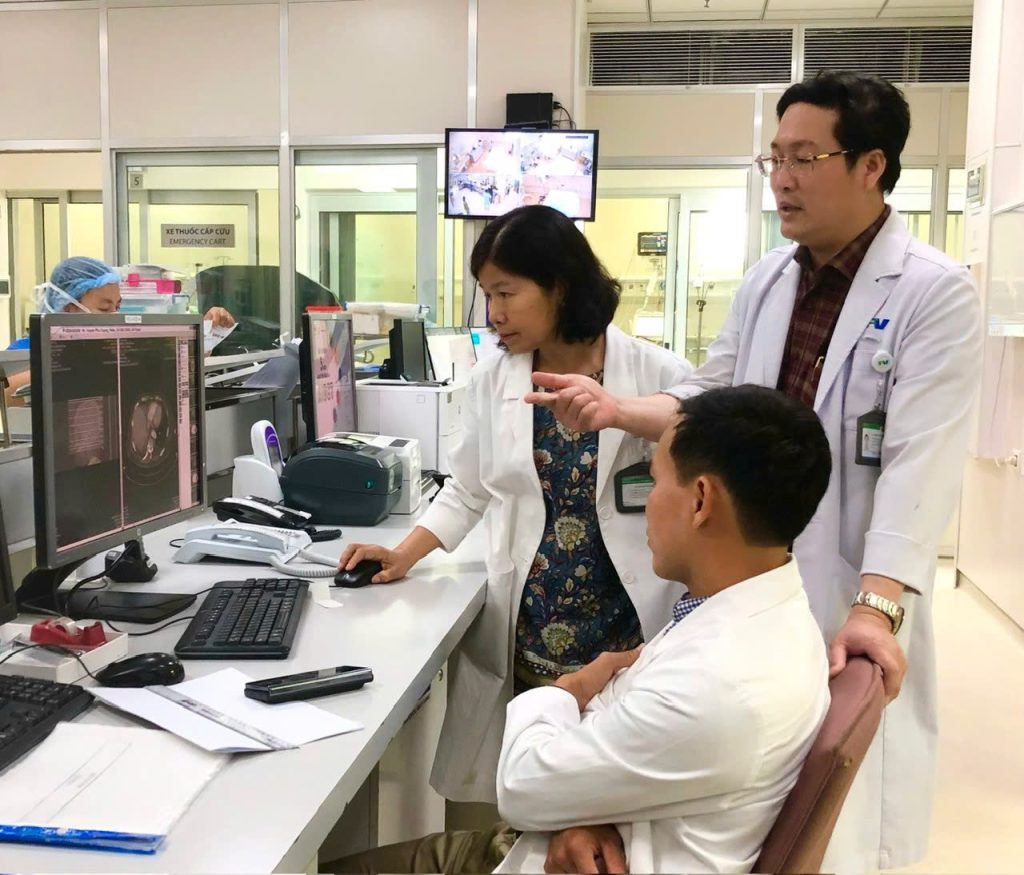
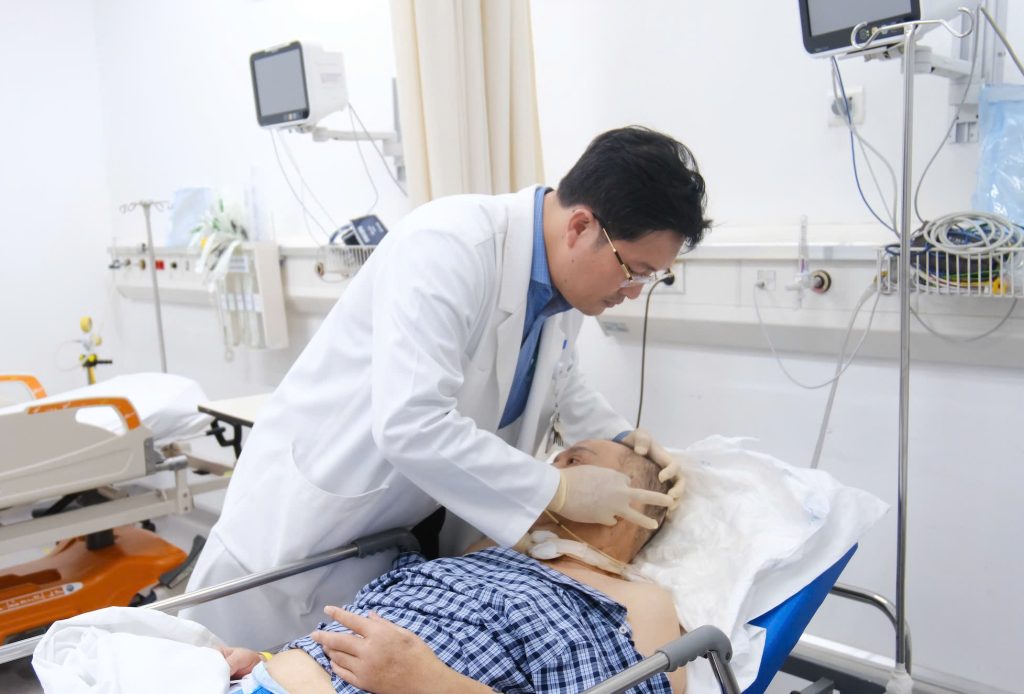
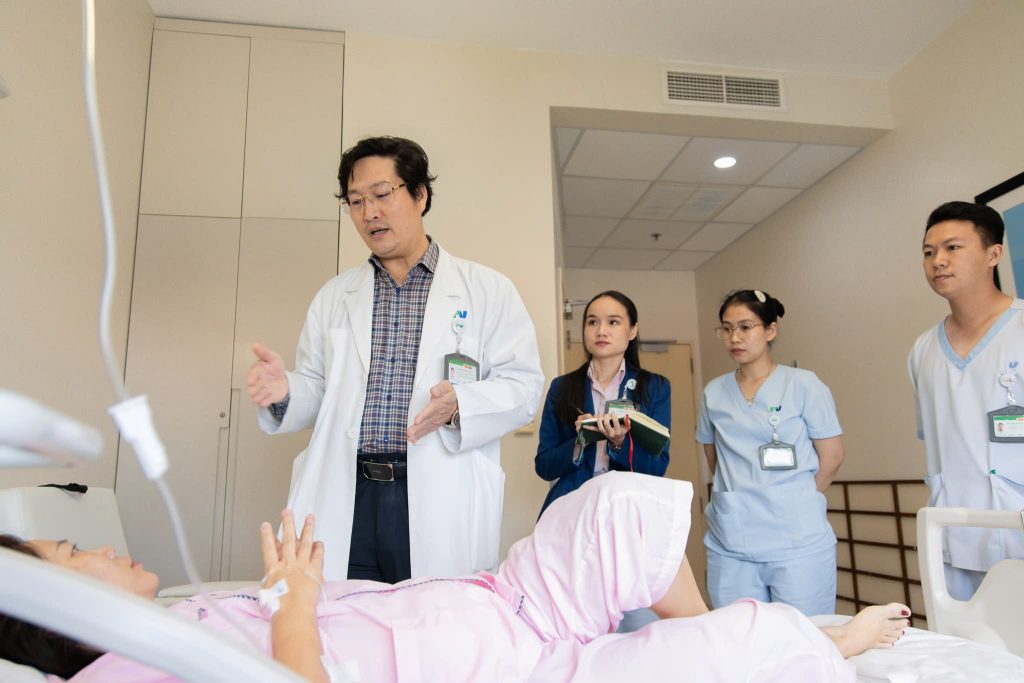
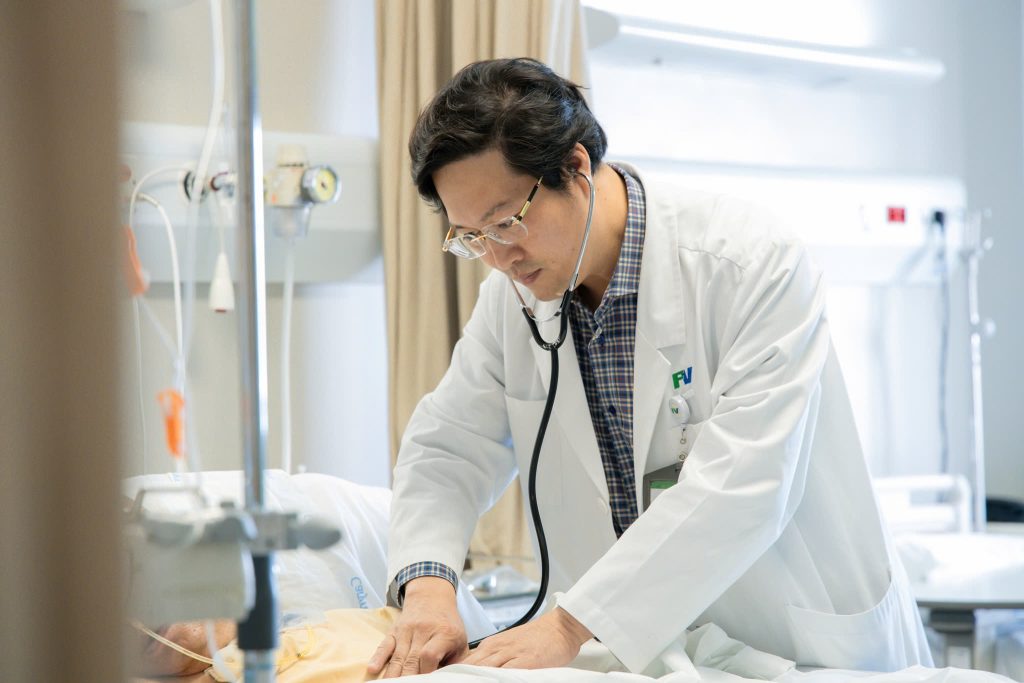
“Sometimes in medicine, a doctor’s intuition can make the difference between life and death,” Dr Nguyen Manh Hung recalls. “The differences in exceptional cases are often subtle and not always clearly visible; they are often decided by the physician’s gut feeling.” Trusting his instincts, he swiftly decided to perform an urgent surgery to insert a drainage tube to relieve pressure on the patient’s brain, allowing the blood to flow and saving their life by a hair’s breadth.
“The entire procedure took only five minutes, but they were five incredibly intense minutes,” Dr Hung recalls. “Once we succeeded in the initial step, the only thing on my mind was what we needed to do next to help the patient recover.” He and his colleagues then undertook several other complex treatments, gradually helping the patient regain their functions and eventually be discharged from the hospital to continue treatment at home.
This is just one of many instances where Dr Hung has faced extreme challenges in his field. As the Head of Neurosurgery and Endovascular Neurosurgery he performs hundreds of surgeries each year, but it’s these moments of pulling patients back from the brink that evoke the deepest emotions in him.
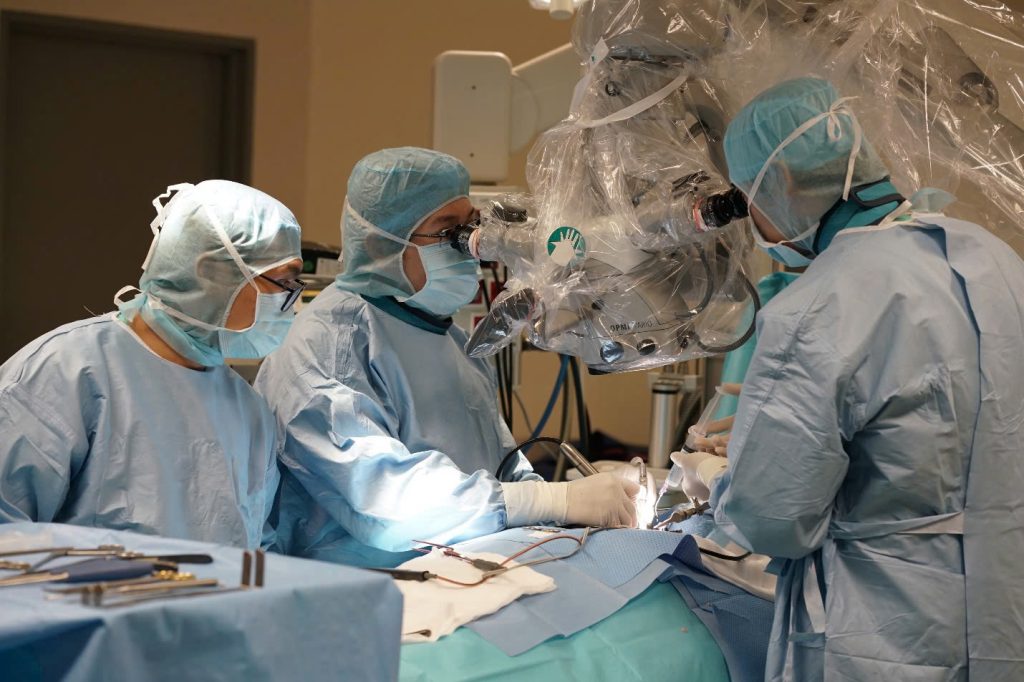
No specialty in medicine is easy, and every surgeon must give their all in the work of saving lives. However, neurosurgery is often considered one of the most challenging fields. A neurosurgeon needs extensive knowledge of the brain and spine, and their functions. These are incredibly complex organs, with many interconnected systems involving all major organs and glands.
“Everyone knows that studying neurosurgery is a tough journey. Performing surgeries on the brain and spine, the organs responsible for controlling the entire body, is not easy. But I am someone who enjoys challenges and likes to do what others often consider ‘difficult.’ It’s the ‘difficult’ work that brings me joy,” Dr Hung shared about his motivation to pursue a career in Neurosurgery and Endovascular Neurosurgery.
Dr Nguyen Manh Hung has had the opportunity to develop his skills in various high-pressure environments, treating critically ill patients who are barely clinging to life. From being a student at the University of Medicine and Pharmacy in Ho Chi Minh City to a resident doctor at Gia Định People’s Hospital, and eventually joining FV Hospital, each step of Dr Hung’s journey has been an opportunity to enrich his experience, enhance his skills, and strengthen his resilience.
In addition to his extensive experience, Dr Hung is highly respected by his colleagues for successfully treating numerous cases of severe traumatic brain injury, including one patient who had been in a vegetative state for several months. This patient had been treated at various medical facilities, but his condition continued to deteriorate. The family had been advised to prepare for the worst.
“Traumatic brain injury, skull defects, infections, severe pneumonia, a vegetative state… Nearly all the most complex and dangerous conditions were present in this patient. But when I saw that there was still a chance to save him, I was determined to do everything I could,” Dr Hung shared. After 80 days of treatment, the patient gradually recovered, eventually being able to speak, sit up, and walk with assistance, and was discharged to return home with his family.
Dr Hung reflects that it is precisely these intense life-and-death moments battling alongside patients that have sharpened his professional intuition and enabled him to make bold decisions that often go beyond standard medical guidelines.
“In truth, there are very few exceptions or rare cases in medicine. But with intuition and professional sensitivity, a doctor can sometimes recognise those rare opportunities. And when I know I can find a way, a solution to help a patient, to save their life, no matter how difficult or challenging it may be, I remain clear-headed and decisive in making treatment decisions,” expressed FV’s Head of Neurosurgery and Endovascular Neurosurgery.
”Perfectionism is the first requirement I set for myself”
Passion for research and years of practice have enabled Dr Nguyen Manh Hung to accumulate extensive experience and the ability to handle situations quickly and accurately. Alongside the skills developed over two decades in surgery, he has always adhered to his own principles when treating patients.
“Every action a doctor takes is connected to the patient’s life, so perfectionism is the first requirement I set for myself. Therefore, I focus entirely on every stage of the treatment process. For instance, after completing a surgery, many might leave the suturing to supporting doctors, but not me. My suturing usually takes longer than my colleagues’ because I want to ensure the highest level of perfection and completeness,” Dr Hung shared.
The perfectionism of this Head of the Neurosurgery and Endovascular Neurosurgery Department has also left a strong impression on those who work with him. Ms Bui Thi Na, Nurse Team Leader – Surgical East Ward, says she is always amazed by the energy Dr Hung dedicates to his work.
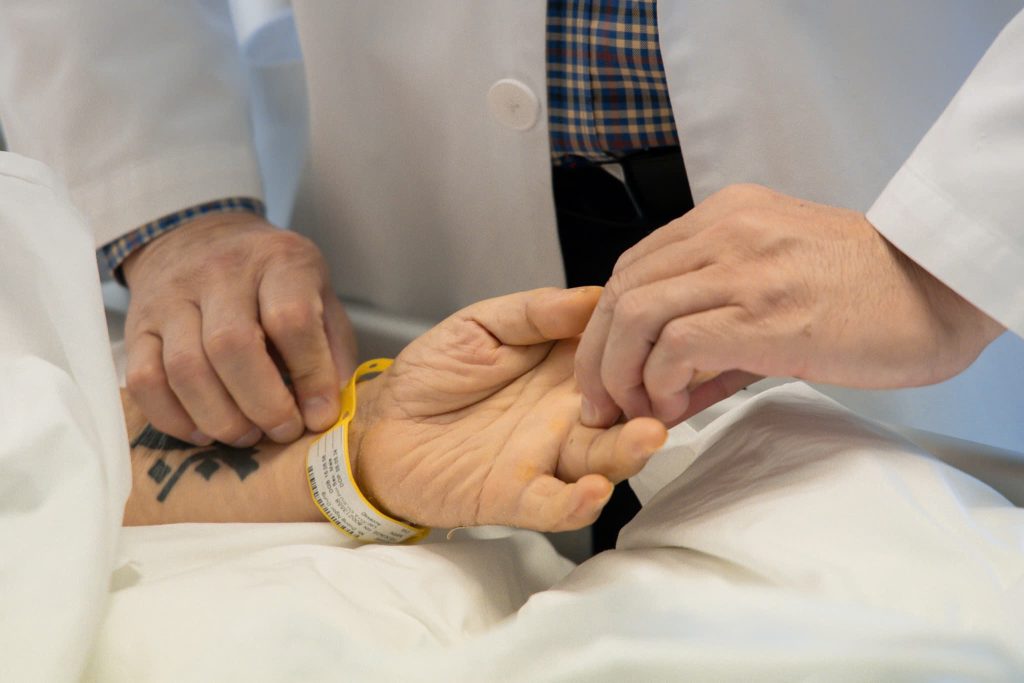
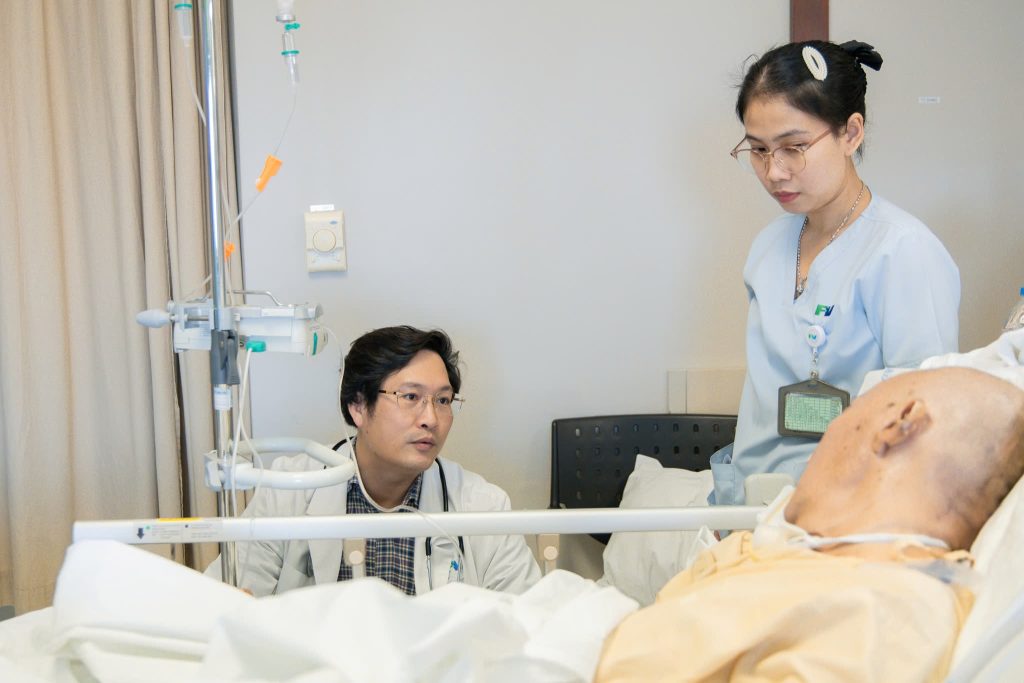
“Some surgeries can last from morning through the afternoon. Once the surgery is done, Dr Hung’s first action is to visit and thoroughly check on each inpatient’s condition. He often forgets to eat or sleep because work is his top priority,” Ms Na shared.
In addition to his perfectionist philosophy, Dr Hung places the principle of ‘treating patients like family’ at the forefront of his professional principles.
“When patients come to me, they entrust their lives to me, so I must help them to the best of my ability. My father was also a doctor, and from a young age, I saw how he cared for his patients, which deeply influenced me. Treating patients like family is a natural thing for me,” Dr Hung expressed.
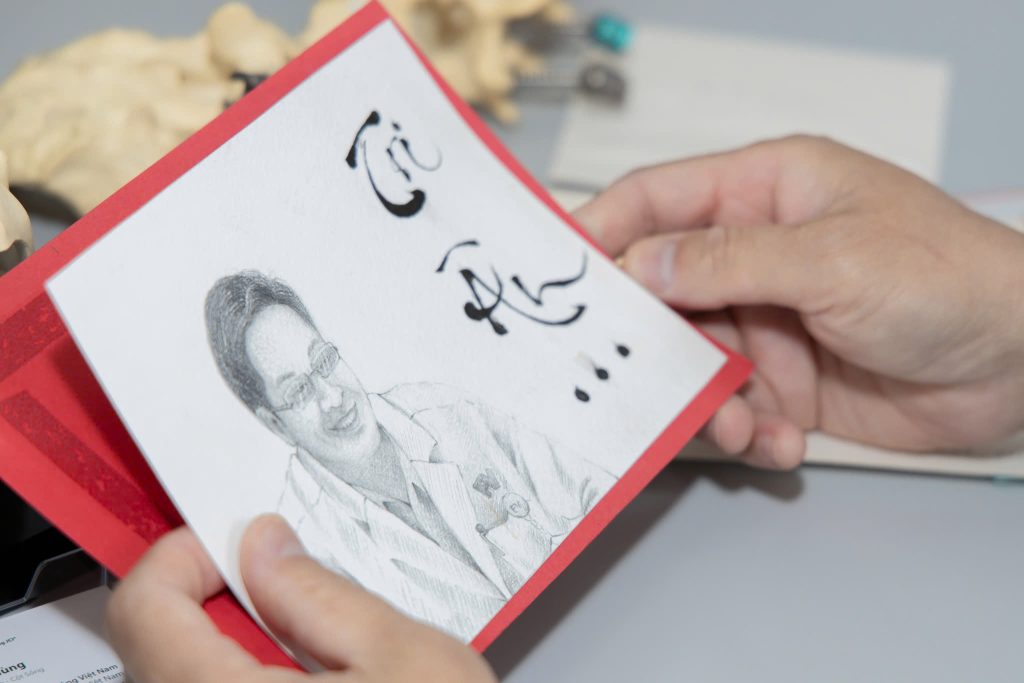
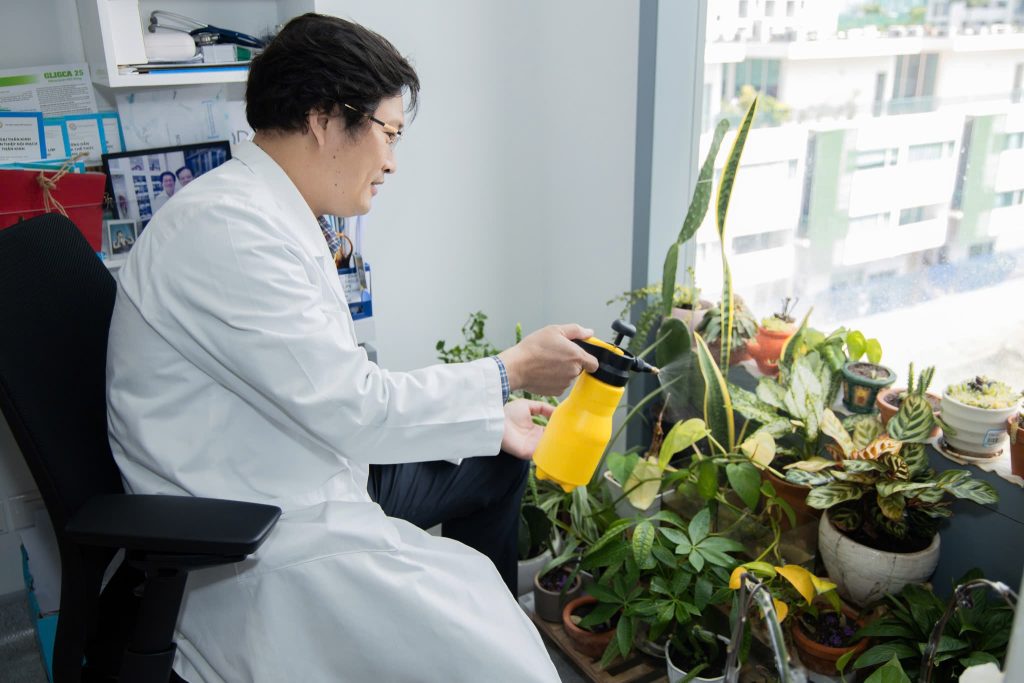
He also treasures the heartfelt appreciation from patients, seeing it as motivation to fully dedicate himself to his profession. As a result, he keeps all the thank-you notes from patients, including a portrait drawn by one of them. His workspace in the neurosurgery department has become a small garden created from these tokens of gratitude.
“At first, I only had a small plant because I enjoy taking care of plants. Then patients, noticing my love for plants, started bringing me more small pots, and now it has turned into a ‘garden’,” Dr Hung humorously shared.
Despite a packed surgery schedule, busy management duties, and even arranging home visits for some special cases, Dr Hung still expresses his desire to teach and help train future skilled surgeons.
“I really want to pass on the experiences and knowledge I’ve gained to the younger generation of doctors. I believe that teaching and working with them will also help me learn many things,” the young department head added.
After our conversation, Dr Hung hurried off to continue his rounds for inpatients before heading into an afternoon surgery. With long strides, he quickly disappeared down the hospital corridor, where many patients and their families eagerly awaited the talented young department head to offer hope and strength for their treatment journey.

 Vi
Vi 
